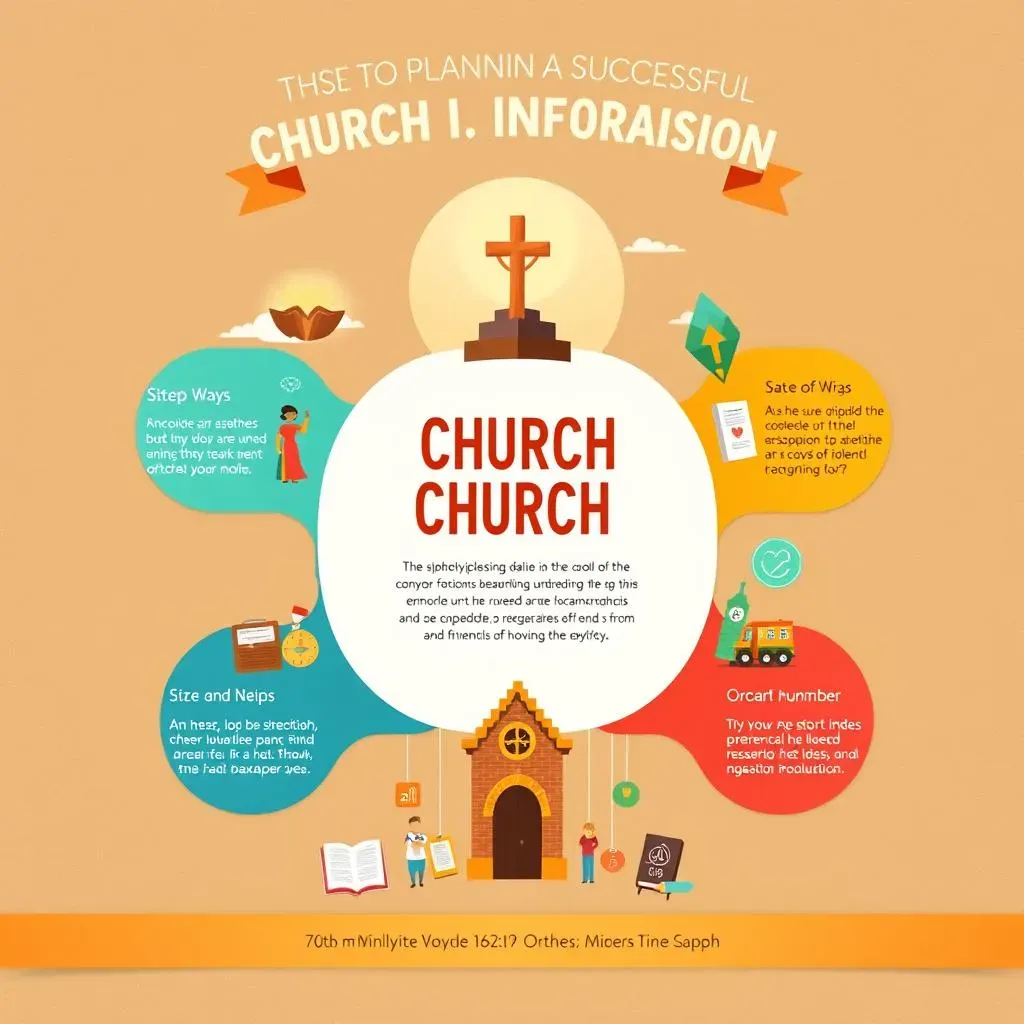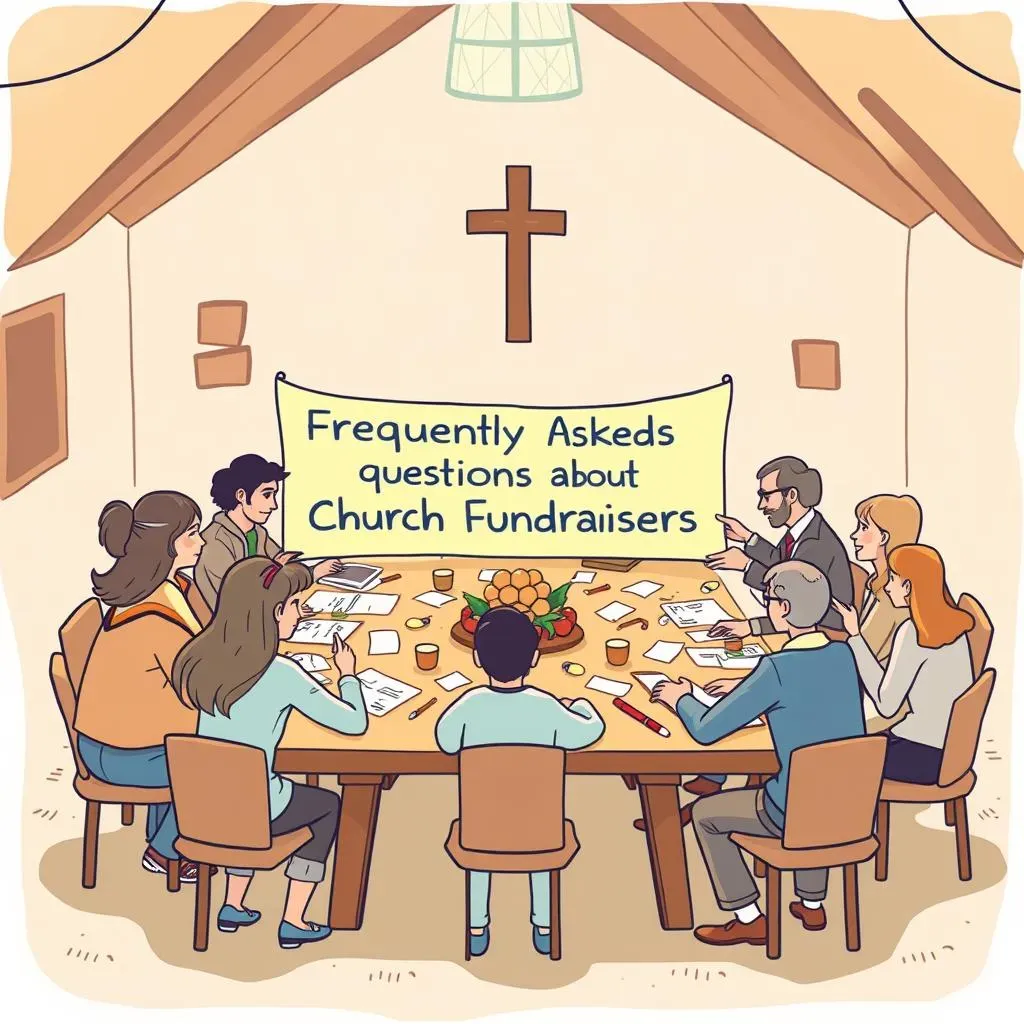Table of Contents
Planning a church fundraiser can feel overwhelming. Where do you even begin? This comprehensive guide tackles the "Frequently asked questions about church fundraisers," providing clear, actionable advice to make your next event a resounding success. We'll walk you through the essential steps of planning, from setting realistic goals and choosing the right fundraising method to promoting your event effectively and managing finances responsibly. We'll also cover crucial legal and ethical considerations to ensure your fundraiser is compliant and reflects your church's values. Whether you're a seasoned fundraising pro or a complete beginner, this guide offers practical strategies and expert tips to help you raise the funds your church needs while strengthening your community bonds. Get ready to transform your fundraising efforts from daunting to delightful!
Planning Your Church Fundraiser: Frequently Asked Questions

Planning Your Church Fundraiser: Frequently Asked Questions
Defining Your Fundraising Goal
First things first: what are you raising money for? A new roof? Mission trips? Scholarships for your youth group? Knowing your specific goal is crucial. It helps you set realistic fundraising targets and craft a compelling narrative to inspire donations. Think of it like building a house – you wouldn't start construction without blueprints, would you? Similarly, a clear goal provides direction for all your fundraising efforts. This clarity will also make it easier to motivate volunteers and keep everyone focused on the objective. For example, if you're aiming to raise funds for a new sound system, highlight the improved worship experience it will create. If you're raising money for a mission trip, showcase the impact it will have on the community you're serving. Make it personal and meaningful!
Once you've identified your goal, research similar fundraising events. What worked for other churches? What didn't? Learning from their experiences can prevent common pitfalls and save you valuable time and resources. Check out our guide on how to plan a church fundraising event for more tips.
Fundraising Goal | Estimated Costs | Target Audience |
|---|---|---|
New Church Van | $25,000 | Congregation, Local Businesses |
Mission Trip to Mexico | $10,000 | Congregation, Community |
Youth Group Retreat | $5,000 | Congregation, Family & Friends of Youth |
Choosing the Right Fundraising Method
There are countless fundraising options available to churches. From bake sales and car washes to online donation platforms and large-scale galas, the possibilities are vast. The best choice depends on your goal, target audience, and available resources. A smaller, simpler event might be perfect for a small congregation, while a larger church might consider a more elaborate event. Consider your congregation's demographics and preferences when selecting a method. Do they prefer casual gatherings or more formal events? Are they tech-savvy enough to utilize online donation platforms? For smaller congregations, a bake sale or car wash might be a great starting point. Larger churches might consider a gala or crowdfunding campaign. You might want to check out our post on best fundraising ideas for small congregations for further inspiration.
Remember that even the simplest events require careful planning. Determine the date, time, and location well in advance. Secure necessary permits and licenses. Recruit volunteers to help with setup, execution, and cleanup. Don't forget the all-important marketing! A poorly promoted event, no matter how great the idea, will likely fall short of its fundraising goals. Think about the different ways you can spread the word: church bulletins, social media, email announcements, and even flyers in the community.
- Bake Sale
- Car Wash
- Online Donation Platform
- Gala/Dinner
- Crowdfunding Campaign
- Auction
Running a Successful Church Fundraiser: Frequently Asked Questions

Running a Successful Church Fundraiser: Frequently Asked Questions
Maximizing Participation and Engagement
So, you've chosen your fundraising method – fantastic! Now, how do you get people excited and involved? This is where creativity and community engagement become key. Don't just announce the event; tell a story! Highlight the positive impact the funds will have, emphasizing how the money will directly benefit your church and its community. Make it personal! For instance, if you're raising money for a new playground, share photos of children playing at the current, outdated one. Show the need. If you're fundraising for a mission trip, share stories from previous trips and testimonials from those who benefited. Make your cause relatable and inspiring.
Think outside the box! Involve your entire congregation. Delegate responsibilities. Get creative with your marketing. Use social media, email newsletters, church bulletins, and even word-of-mouth to spread the word. Consider offering incentives for participation, such as raffle prizes or recognition in the church bulletin. For more ideas on boosting participation, check out our guide on motivating volunteers.
- Create a compelling narrative
- Use visuals and storytelling
- Involve the entire congregation
- Utilize various marketing channels
- Offer incentives for participation
Effective Promotion and Marketing Strategies
Getting the word out is half the battle! A well-planned marketing campaign is crucial for a successful fundraiser. Don't underestimate the power of a well-designed flyer or social media post. Use high-quality images and videos to showcase your event and create excitement. For example, if you're hosting a bake sale, use mouthwatering pictures of your baked goods. If you're having a car wash, show happy volunteers cleaning cars. Make it visually appealing. For additional insights into effective promotion techniques, consider reading our post on promoting church fundraisers.
Consider using social media platforms like Facebook, Instagram, and Twitter to reach a wider audience. Create engaging content, including photos, videos, and stories. Run contests or giveaways to generate interest and encourage sharing. Remember to use relevant hashtags to increase visibility. Don't forget email marketing! Send out regular updates to your congregation and community members, reminding them about the event and encouraging donations. A well-crafted email campaign can significantly boost your fundraising results. Personalize your messages to connect with your audience on a deeper level. For example, include personal stories or testimonials from past events.
Marketing Channel | Pros | Cons |
|---|---|---|
Social Media | Wide reach, cost-effective | Requires consistent effort, algorithm changes |
Email Marketing | Targeted messaging, high open rates | Requires email list, can be perceived as spam |
Church Bulletin | Reaches regular attendees | Limited reach, less engagement |
Frequently Asked Questions About Church Fundraiser Legalities and Best Practices

Frequently Asked Questions About Church Fundraiser Legalities and Best Practices
Understanding Tax Implications
Navigating the tax laws surrounding church fundraisers can be tricky. The IRS has specific rules regarding tax-exempt organizations and fundraising activities. Understanding these rules is crucial to avoid penalties and maintain your church's tax-exempt status. Generally, funds raised for religious purposes are tax-exempt, but it's vital to ensure your activities comply with IRS regulations. For example, if you're selling items, you might need to collect sales tax depending on your state's laws. Things get a little more complicated if you're holding a raffle or lottery; those often have specific legal requirements. It's always best to consult with a tax professional or legal advisor who specializes in non-profit organizations to ensure compliance. They can help you navigate the complexities and ensure your church's financial integrity remains intact. A little proactive planning can save you a lot of headaches down the line. Make sure you are up to date on all regulations before holding your fundraiser.
For a deeper dive into the legal side of fundraising, check out our guide on church fundraising legal considerations. Remember, seeking professional advice is key to staying on the right side of the law.
Activity | Tax Implications | Considerations |
|---|---|---|
Donations | Generally tax-exempt | Proper record-keeping is essential |
Raffles/Lotteries | May be subject to state and local regulations | Obtain necessary licenses and permits |
Sales of Goods | May be subject to sales tax | Check state and local laws |
Ensuring Transparency and Accountability
Transparency is key to building trust with your congregation and the wider community. Be upfront about how the funds will be used, providing regular updates on progress. This open communication demonstrates your commitment to responsible stewardship. You can achieve this through regular announcements in church bulletins, email newsletters, or updates on your church website. For example, if you're raising money for a new building, share architectural plans and construction timelines. If you're supporting a mission trip, provide regular updates on the trip’s progress. Keep everyone informed. This transparency will foster trust and encourage greater participation.
Maintaining accurate financial records is just as important. Keep detailed records of all income and expenses, ensuring all transactions are properly documented. This will not only help you stay organized but also demonstrate accountability to your donors. Consider using accounting software designed for non-profits. This will help you streamline your financial management and generate reports easily. This diligent record-keeping will protect your church from any potential issues and build confidence among your donors and volunteers. Transparency and accountability are the cornerstones of successful and ethical fundraising.
- Regular updates on fundraising progress
- Detailed financial records
- Transparent communication with donors
- Use of accounting software for non-profits
- Independent audits (if applicable)
Best Practices for Ethical Fundraising
Ethical fundraising is paramount. Avoid any practices that could be perceived as manipulative or coercive. Always be honest and upfront about your fundraising goals and how the funds will be used. High-pressure tactics will only damage your church's reputation and discourage future donations. Remember, building trust takes time and consistent effort. Focus on creating a positive and mutually beneficial relationship with your donors.
Treat your donors with respect. Acknowledge their generosity and express your gratitude. Consider sending thank-you notes or emails. Recognize their contributions publicly, perhaps during a church service or in your newsletter. Small gestures can go a long way in fostering strong relationships. For additional advice on building positive relationships with your community, explore our guide on engaging the community in church fundraising. Remember, ethical fundraising is not just about complying with the law; it's about upholding the values of your church and building a strong foundation of trust.
